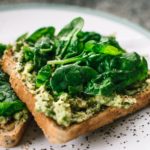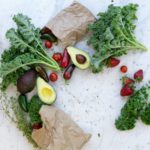Nutrition For The Elderly
Healthy eating and nutrition for the elderly are greatly impacted by several factors, one of them being a change in body composition. During the later years of life, the body will lose bone and muscle and gain fat because the hormones aren’t very active anymore.
There are many factors that hinder an elderly person’s health. The information below will help you to lead a healthy life – no matter how old you may be.
Water
Water in the body decreases with age, so many older folks will become dehydrated very easily. Sometimes they won’t feel thirsty, while other times it’s too much work to pour a glass of water. With this in mind, it’s recommended that they drink at least an ounce of water for every 2.2 pounds of weight.
Protein
At this stage in life, protein is very important. Protein is needed to support a healthy immune system and prevent the wasting of muscle. Since energy needs are less, older folks should eat high-quality protein such as eggs, lean meats, poultry, and fish.
Carbs and fiber
Carbohydrates are the main source of energy for the entire body. You can find carbs in bread, cereals, pasta, and other grain products. A diet that’s high in fiber and water will help to prevent constipation as well.
Fat
Fat intake for the elderly should be limited, not eliminated. You can limit fat by choosing lean meats, low-fat dairy products, and food preparation methods that don’t include frying.
Iron
For the elderly, iron deficiency can be seen in those who aren’t eating much. Good sources of iron include lean red meats or breakfast cereals.
Zinc
Zinc intake is normal with the elderly, and to make matters worse, it’s not absorbed very well either. Meat, poultry, and fish should be a part of your diet to help you meet the requirements for zinc.
Calcium
Calcium is one ingredient that most elderly folks simply aren’t getting enough of. Most believe that milk upsets their stomach, and therefore they will avoid it. They should be getting around 1,500mg of calcium a day, and nonfat powdered milk can be used in recipes as a substitute for milk. Other foods such as yogurt, low-fat cheese, and broccoli can also help you meet the requirements for calcium.
Vitamin B12
In order to absorb the benefits of B12, the intrinsic factor must be produced by the stomach. Most elderly people suffer from a deficiency in B12 because they have a condition known as atrophic gastritis. This condition causes inflammation of the stomach, bacterial overgrowth, and intrinsic factors. Without the intrinsic factor, this vitamin can be absorbed.
Each one of the above nutrients is needed to keep an aged body in good health. Elderly individuals should try to stay active and strive for a well-balanced diet. Even though the aged body isn’t the same as it used to be, proper care and the right nutrients can help the elderly enjoy a healthy and long life.
DISCLAIMER:
This information is not presented by a medical practitioner and is for educational and informational purposes only. The content is not intended to be a substitute for professional medical advice, diagnosis, or treatment. Always seek the advice of your physician or other qualified healthcare providers with any questions you may have regarding a medical condition. Never disregard professional medical advice or delay in seeking it because of something you have read.
Since natural and/or dietary supplements are not FDA-approved they must be accompanied by a two-part disclaimer on the product label: that the statement has not been evaluated by FDA and that the product is not intended to “diagnose, treat, cure or prevent any disease.”





